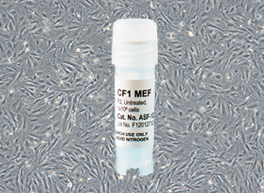
Newsletter

Applied StemCell Inc. (ASC) offers a large array of products for site specific transgenics, cell culture, and stem cell research. Our products encompass a wide spectrum, from: high quality transgenic kits for knock-in mice and knock-out mice generation, mouse embryonic fibroblast (MEF cells), feeder cells, growth factors, options for stem cell characterization and stem cell differentiation, as well an array of iPSC cells. See below for our full product list.
We offer multiple lines including: CF-1, DR4, Neo-resistant and SNL (STO) feeder cells. All MEF cells are very high quality and are manufactured in the US under ISO:9001 QMS. We offer both untreated cells for further expansion and treated cells that can be directly used as a feeder layer.

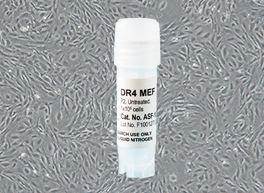
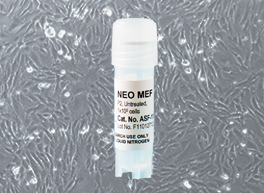
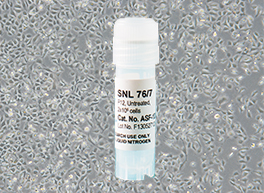
Applied StemCell’s induced pluripotent stem cell (iPSC) catalog includes well-characterized, human iPS cell lines suitable for iPSC culture applications. The high-quality iPSCs are ideal for genome editing, differentiation, and drug toxicity/efficacy screening projects:
Along with human iPSCs, we provide mouse embryonic stem cells (mESCs) and mouse iPSCs. Contact us today to learn more about our ready-to-use iPSC control lines.

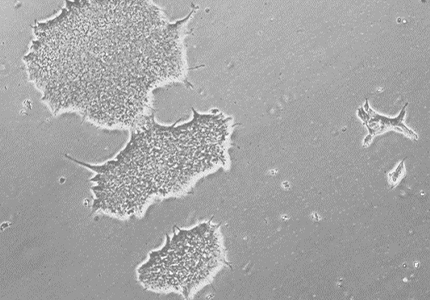
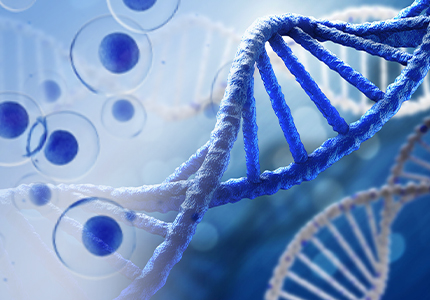
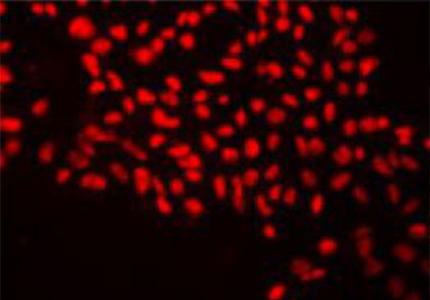
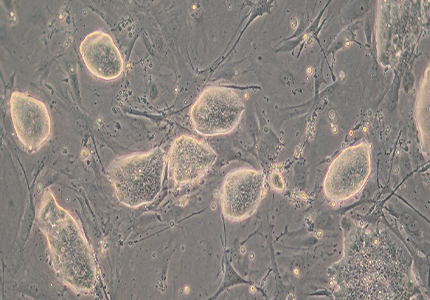
We offer fully characterized progenitors and differentiated cell lines derived from integration-free iPSCs using feeder-free culture protocols: Neural stem cells (NSCs), Neurons (Dopaminergic and Cortical neurons), Astrocytes, Microglia, and Cardiomyocytes. The cell lines have been characterized for the expression of characteristic biomarkers using immunohistochemistry and for functional viability.
Ideal for various applications in biomedical and applied research:
Applied StemCell offers a research-ready, isogenic panel of genome-edited human iPSCs and their differentiated cells from well-characterized control, parental iPSCs. These gene-edited human iPSCs and differentiated neuronal lineage cell lines are ideal for hard-to-model or hard-to-source neurological diseases disease modeling, neurotoxicity screening, and drug discovery and screening studies.
Tailor-make your own iPSCs using Applied StemCell’s Human iPSC Reprogramming Kits:
(1) EZ-iPSC Generation Kit (Retrovirus Vector) (ASK-3012) – Generate pluripotent cell lines from a broad range of tissues and cell types using our well- characterized high efficiency protocol with our specially optimized VSV-G retroviral cocktail.
(2) EZ-iPSC Generation Kit (Episomal Vector) (ASK-3013) – For integration-free and footprint-free pluripotent cells, try our high efficiency reprogramming kit which uses our proprietary oriP/EBNA-1 episomal vector. The episomal kit does not need small molecules but gives you the flexibility to use feeder-free and feeder-based media.
Create your own iPS cells, to suit your specific needs, at all stages of your pluripotent stem cell research.
Applied StemCell (ASC) now provides the tools you need for in vitro 3D induced pluripotent stem cell (iPSC) cultures. The MyEZGel™ iPSC Matrix kit allows the formation of a 3D microenvironment for iPSC growth. With the MyEZGel™ kit, your cells do not have to undergo acidic or chill conditions, and the cells can be easily harvested from the matrix.
ASC also offers a 3D gel of our iPSC control line, ASE-9211. Our ASE-9211 “Master” iPSC line is being used as a benchmark material for developing measurements and standards for the rapidly evolving genetically engineered cells used in cell therapy research. Contact us today to learn more!